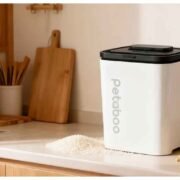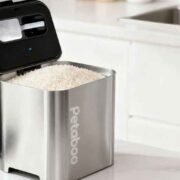Hard water can be a significant and frustrating issue for homeowners. Not only can it cause mineral buildup in pipes and appliances, but it can also affect the taste and quality of your water.
Fortunately, a water softener can solve this problem, but with so many options available, choosing the right one for your home can be overwhelming. In this blog post, take a closer look at how to pick the right water softener for your home.
- Determine Your Water Hardness Level – An essential first step in selecting a water softener is determining the hardness level in your water. This can be done by having your water tested, which can be done by a professional or with a DIY testing kit. Knowing your water hardness level can help you choose the right size and type of water softener for your needs.
- Choose the Right Size – The size of the water softener you choose depends on your household size, water usage, and water hardness level. Sizing a water softener correctly ensures that it will work effectively and efficiently. A smaller system will require more regeneration cycles, using more water and salt. In contrast, a larger system will operate less frequently, which can help reduce water and salt consumption.
- Consider Your Space and Plumbing – Once you’ve determined the appropriate size for your water softener, you must consider the available space in your home and the plumbing requirements. Water softeners come in different sizes and styles, and some models may require additional space for the regeneration process. Additionally, you must ensure that the plumbing in your home can accommodate the installation of a water softener.
- Choose the Right Type – There are two main types of water softeners: salt-based and salt-free. Salt-based systems are the most popular and effective, utilizing salt to remove minerals from your water. While these systems need regular salt refilling, they are more effective in removing hard water. On the other hand, salt-free systems use other technologies like magnets or filters to change the structure of minerals in water, preventing their accumulation on surfaces. These systems require less maintenance, but they may not be as effective in removing hard water.
- Look for Additional Features – While a water softener’s primary function is to remove hardness from your water, some models offer additional features that you may find beneficial. For instance, some systems have a built-in chlorine removal filter or a carbon filter that can help improve the taste and quality of your water. Others may come with a timer, allowing you to control the regeneration process and reduce water and salt consumption.
With the help of this guide, you should have a better understanding of how to pick the right water softener for your home. By considering factors like water hardness level, size, space, plumbing, type, and additional features, you can choose a system that suits your needs and budget.
A water softener can improve the quality of your water, prevent mineral buildup in plumbing and appliances, and reduce the need for costly repairs. If you’re unsure which type of water softener is best for you, consult a professional to ensure that you make the right choice.











